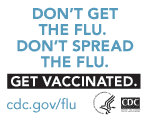November Is Lung Cancer Awareness Month
 More people die from lung cancer than any other type of cancer. In 2004,* lung cancer accounted for more deaths than breast, prostate, and colon cancer combined. The most important thing you can do to prevent lung cancer is to not start smoking or to quit if you currently smoke.
More people die from lung cancer than any other type of cancer. In 2004,* lung cancer accounted for more deaths than breast, prostate, and colon cancer combined. The most important thing you can do to prevent lung cancer is to not start smoking or to quit if you currently smoke.
In 2004,*
- 108,355 men and 87,897 women were diagnosed with lung cancer.†
- 89,575 men and 68,431 women died from lung cancer.†
Smoking and Secondhand Smoke

In the United States, about 90% of lung cancer deaths in men and almost 80% of lung cancer deaths in women are due to smoking. People who smoke are 10 to 20 times more likely to get lung cancer or die from lung cancer than people who do not smoke. The longer a person smokes and the more cigarettes smoked each day, the more risk goes up.
Smoke from other people's cigarettes ("secondhand" smoke) causes lung cancer as well. The 2006 Surgeon General's Report, The Health Consequences of Involuntary Exposure to Tobacco Smoke, concludes there is no safe level of secondhand smoke for nonsmokers.
Other Things That May Cause Cancer at Home and Work
Radon gas causes lung cancer and is sometimes found in people's homes. Radon is an odorless, colorless gas that comes from rocks and dirt and can get trapped in houses and buildings. Examples of substances found at some workplaces that increase risk include asbestos, arsenic, and some forms of silica and chromium. For many of these substances, the risk of getting lung cancer is even higher for those who also smoke.
Family History
The risk of lung cancer may be higher if a person's parents, siblings (brother or sister), or children have had lung cancer.
Reduce Your Risk
- Don't Smoke
The most important thing you can do to prevent lung cancer is to not start smoking or to quit if you currently smoke. Free "quit smoking" support is available by telephone to smokers anywhere in the United States. The toll-free number is 1-800-QUITNOW (1-800-784-8669). - Avoid Secondhand Smoke
CDC's Office of Smoking and Health has information about secondhand smoke. - Make Your Home and Workplace Safer
The Environmental Protection Agency (EPA) recommends that all homes be tested for radon. EPA's radon Web site has information about radon and radon testing. Health and safety guidelines in the workplace can help workers avoid things that can cause cancer. Learn more at Occupational Cancer.
Screening
Scientists have studied several types of screening tests for lung cancer. It is not known if these tests can help prevent deaths from lung cancer. A review of these studies by experts shows that more information is needed (U.S. Preventive Services Task Force Recommendations).
Cancer Survivors

Cancer survivors face a variety of issues from diagnosis through treatment and beyond. CDC provides links to resources and support for those living with cancer and their caregivers.
More Information
- Lung Cancer
- Cáncer de pulmón (Spanish)
- Smoking and Tobacco Use
- Office on Smoking and Health, CDC
- Screening, U.S. Preventive Services Task Force
- Screening and Testing (National Cancer Institute)
- smokefree.gov
- Download a podcast
- Snuff Out Smoking (
 4:41 mins)
4:41 mins)
- Snuff Out Smoking (
- Send a Health-e-Card
*The most recent year for which statistics are currently available.
†U.S. Cancer Statistics Working Group. United States Cancer Statistics: 2004 Incidence and Mortality. Atlanta (GA): Department of Health and Human Services, Centers for Disease Control and Prevention, and National Cancer Institute; 2007.




